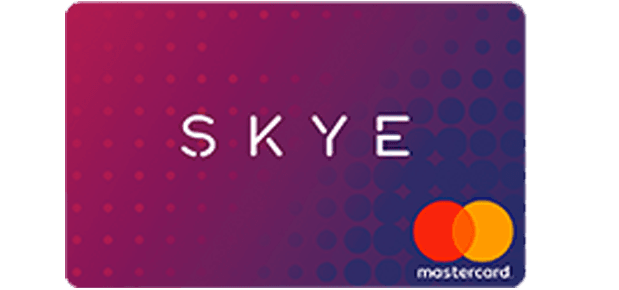8 personal finance habits to get more out of life

Hacks to help you spend less time thinking about your money and more time enjoying it.
For most of us, the start of a new financial year means getting details together for our tax return (and hoping it will lead to a large refund). It also gives us a good excuse to reset our financial habits and goals. That's more important than ever in 2020, with so much financial uncertainty.
From building your nest egg to getting started with investments, here are 8 easy ways you can supercharge your money – and all of them are easier than doing your tax return.
 Sponsored by Skye Mastercard. Get up to 110 days interest-free on purchases and pay off large items with 0% interest instalments for a small fee. Exclusive: Apply through Finder by 19 October 2020 and get a 0% rate on balance transfers for the first 25 months with no balance transfer fee. Interest rate reverts to 25.99% p.a. thereafter. T&Cs apply.
Sponsored by Skye Mastercard. Get up to 110 days interest-free on purchases and pay off large items with 0% interest instalments for a small fee. Exclusive: Apply through Finder by 19 October 2020 and get a 0% rate on balance transfers for the first 25 months with no balance transfer fee. Interest rate reverts to 25.99% p.a. thereafter. T&Cs apply.1. Put extra money into savings
Most of the time, any money we receive will go straight into our transaction accounts. This includes your tax refund and any money you've saved by staying home over the past few months, as well as cashback offers and other promotions you might have redeemed.
If you transfer this extra money to a savings account, you'll add to your balance and also earn more interest over time.
Take it further: Check what interest rate your savings account offers before doing the transfer. Given how much rates have fluctuated in the past financial year, you could upgrade to an account with a higher interest rate if you switch.
2. Buy things that last
Unless there is a shortage of something (hello, toilet paper), we are usually spoiled for choice with whatever we want to buy. Need a new jacket, laptop or home office equipment? There's hundreds of stores you can browse, not to mention different styles and price-points.
If you choose items that are made of high-quality materials and have a long lifespan, you'll probably pay more up front but buy less in the long run. This means you can save money and time searching for a replacement. As a bonus: it's also more environmentally friendly to buy better items, less often.
Take it further: If you don't want to pay the full price for something straight away, look into getting it on layby or with a payment plan. Most stores offer a couple of ways to pay. You could also use a credit card that offers interest-free days or instalment plans, such as the Skye Mastercard (which offers up to 110 days interest-free) or any HSBC credit card (which gives you access to interest-free payment plans with partnered stores).
If you do pay with plastic, be aware that interest-free days are usually only offered if you pay off your entire balance each month, while instalment plans could depend on a set of retail partners or your credit card brand.

3. Get rewarded for your spending
If you're spending money anyway, why not get something back for it? Lots of brands now have loyalty programs – including Coles, Woolworths and BP.
There are also credit cards that earn points for each $1 you spend on everyday purchases – and plenty of ways to get frequent flyer points without actually travelling. Not sure if points are your thing? Woolworths and Coles both offer cash off your shop (2,000 points = $10) and plenty of credit cards offer cashback rewards in the form of money back, account credits or gift cards. There are also stores and even bank accounts that run cashback promotions.
Take it further: If the idea of chasing rewards isn't your thing, at least get a loyalty card for your favourite café so you can enjoy a free coffee every now and then.

4. Search for sales and offers
Big sales are seasonal, but there are smaller sales and offers that crop up all the time. If you know what you need to buy, it often pays to do a quick search for sales or coupon codes to see if you can save money.
On the surface, some of these deals are small change – for example, free shipping or $20 off your first order. But if you make a habit of searching for discounts every time you're shopping, the savings will add up.
Tip: Check whether the brand your shopping with has a newsletter. Often there will be a bonus offer to encourage you to sign up – and you can always unsubscribe after you've used it if you want to.
5. Use an app to save time (and money)
There are so many apps and tools that make it easy to set and track your money goals. For instance, bank apps like those from CommBank, Up and Xinja offer colourful charts, graphs and breakdowns that show you where all your money is going.
There are also apps that let you see all your accounts in one place and offer insights or tips on how to build your wealth – including the Finder App, Pocketbook and the government's TrackMySPEND app. There is a Finder guide that has details on 10 different apps you can use for maximum savings (with minimum effort).
Take it further: Setting a date each month to look at the details in your chosen app will help you see your progress and make any changes along the way.
6. Pay your bills on time
This tip shows up on plenty of different lists, so let's give it a modern spin: set up automatic payments for your bills so you don't have to worry about missing the due date. Most bills give you a direct debit option, including utility accounts, loans, credit cards and even health insurance.
If you can't set up an auto payment that way, some banks also let you schedule regular payments from your transaction account – either through BPAY or a direct bank transfer. You can even do this for your rent or mortgage payments, as well as big yearly costs, such as car registration.
Take it further: If you have a credit card, you'll usually be able to take advantage of interest-free days on purchases if you pay off the required statement balance each month.
7. Start small with investing
It can be daunting to begin investing, but you actually don't need a lot of money to get started. Consistency is a key part of any investment strategy, whether it's shares, bonds or even property.
The first step could be as simple as putting $100 a month into an online share trading account, investment app or a savings account (after doing your research to compare different options). Or you could invest a set percentage of your income every payday, such as 10-20%.
Take it further: Remember that investing can take time to pay off. You may not see huge gains straight away, but this approach means you can learn more about investing as you gradually build your wealth.
8. Check on refunds
So many plans have been cancelled in 2020. If you've paid for something that you can't get any more because of the pandemic, you're probably entitled to a refund or at least a credit for the payment. Finder has covered details on how to get your money back for different types of cancellations and the Australian Competition and Consumer Commission (ACCC) has general details on your rights as a consumer. TL;DR – if you have paid for something and haven't got what you expected, you're usually entitled to compensation or another remedy.
Lots of businesses are under pressure because of the volume of cancellations right now, so it could take a few weeks or even months to get your money back. But take note of the timeframes a business gives you and check your account balance.
Take it further: If you think you're being treated unfairly, submit a complaint to the ACCC or contact your bank to see if you can request a chargeback for the transaction.
While 2020 might not be going exactly how you planned and so much of it is out of your control, these habits show that you can still take control of your finances.
Images: Getty Images
